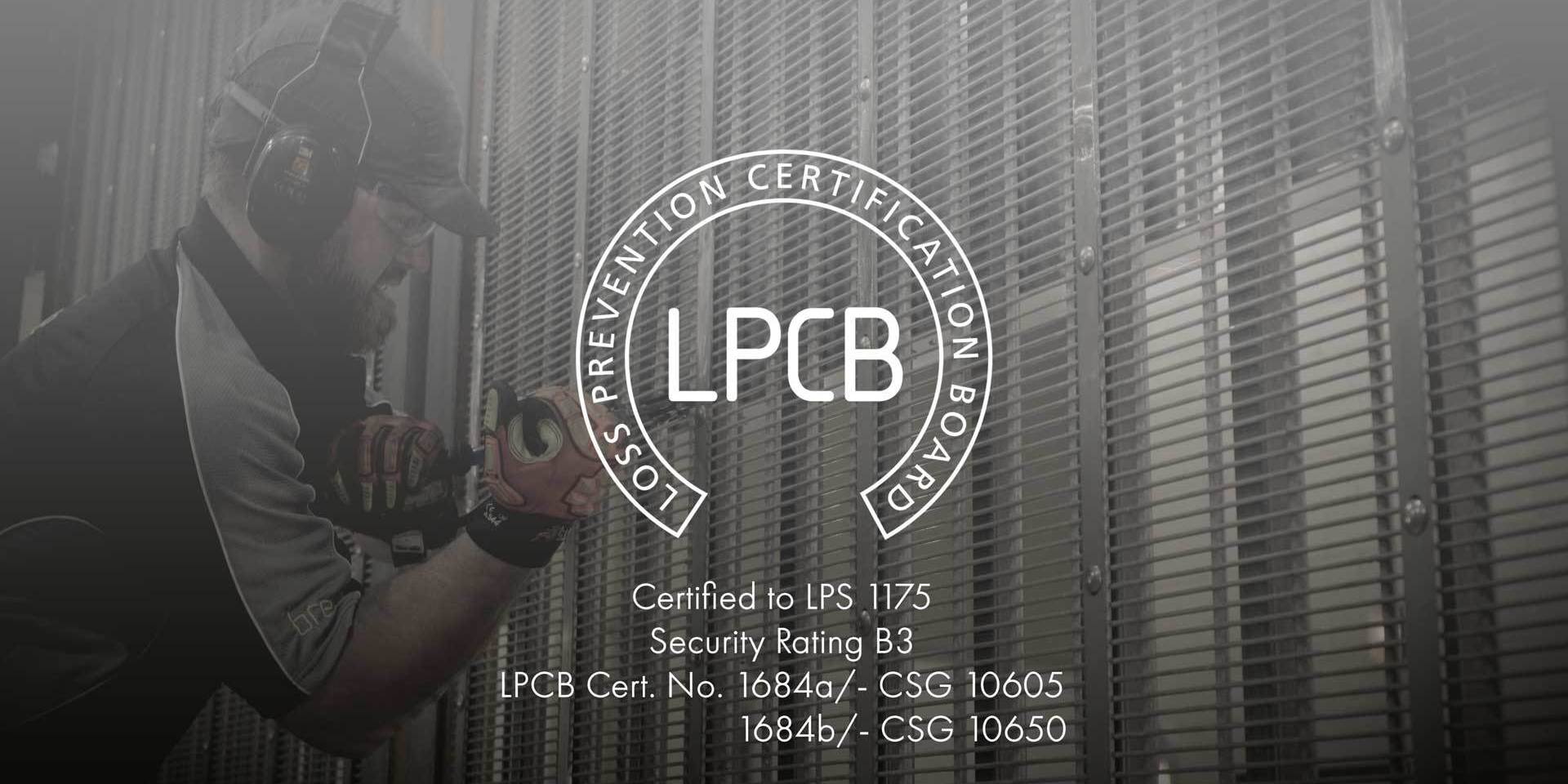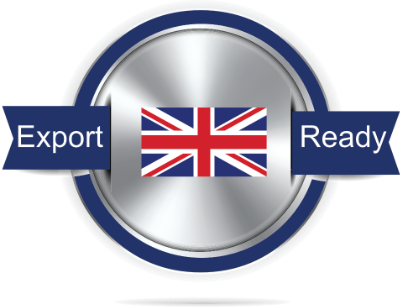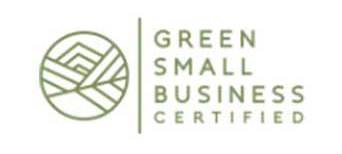
Cova Security Gates Achieve LPS 1175 Certification
Posted on 26th September 2022 at 17:40
Cova Security Gates Ltd are proud to announce that our trackless bi-folding gate models CSG 10605, and CSG 10650 are now certified to the loss Prevention Standard LPS 1175. This builds on our already extensive range of standard, HVM (Hostile Vehicle Mitigation), IWA and CPNI VADS (Vehicle Attack delay Standard) certified gates currently on the market.
Widely recognised and applied in the fire and security sectors throughout the world, LPS 1175 is a Loss Prevention Certification Board (LPCB) standard that measures the resistance of physical perimeter security products against forced entry by intruders, both our trackless bi-folding gate CSG10605, and CSG10650 models now hold LPS 1175 B3 (SR2).

LPCB is operated by the Building Research Establishment (BRE) which is a profit-for-purpose organisation owned by the BRE Trust, a registered charity. Loss Prevention Standard 1175 consists of various security ratings based on the type of tool set and time taken to gain un-authorised entry.
To achieve a B3 (SR2) rating, the product is stringently tested using tool set B (shown below) by a highly skilled assailant over a timed period far in excess of the time certified, this is to allow them to ensure each component of the gate can stand up to the attack time certified for. This process is well considered and means that if there is an opportunity to find a route through, the assailant will succeed. While this is therefore extremely challenging for the manufacture, it ensures the customer gets a quality and ultimately secure product.
For those watching on, the LPS 1175 testing process resembles something that you may see in an action movie. The vigorous test conditions give stake holders absolute assurance that the product will meet security requirements should it be called on. LPS 1175 assumes that intruders have full knowledge of the security product and are willing to make proportionate efforts in attacking it. LPS 1175 takes into consideration the entrepreneurial tendencies of criminals and terrorists – what investment they are willing to make and what risks will be taken to carry out a successful terrorist or criminal act.
The delay provided by physical security measures must match the time required to detect and respond to the attempted intrusion. The threat levels and attack tools that define the security rating (SR) categories in LPS 1175 reflect the latest advice from the UK government, CPNI and NaCTSO, plus other security-focused organisations representing different industries and sectors.
Gaining the LPS 1175 certificate, is not only about passing the physical test. The company (manufacturer) providing the perimeter security product is audited by LPCB against its management systems to ensure the product meets requirements today and into the future. Furthermore, drawings and technical information are scrutinised against data collected during the tests for quality assurance.

Commenting on this latest achievement, Cova Security Gates Managing Director, Jon Trott said:
“We have a proud history of manufacturing perimeter security products recognised for withstanding a range of hostile vehicle attacks. To further this capability, we have reacted to growing demand for gate manufacturers to provide ‘certified’ intruder resistant solutions. While historically the fence line held the focus of security teams for ‘on foot’ intruders, it is right that the gate system is equally capable of stopping unwanted and very determined individuals from gaining entry. Attaining certification to this well-regarded standard further assures our clients of the continued robustness of our quality offering”.
Cova Security Gates Ltd are proud to announce that our trackless bi-folding gate models CSG 10605, and CSG 10650 are now certified to the loss Prevention Standard LPS 1175. This builds on our already extensive range of standard, HVM (Hostile Vehicle Mitigation), IWA and CPNI VADS (Vehicle Attack delay Standard) certified gates currently on the market.
Widely recognised and applied in the fire and security sectors throughout the world, LPS 1175 is a Loss Prevention Certification Board (LPCB) standard that measures the resistance of physical perimeter security products against forced entry by intruders, both our trackless bi-folding gate CSG10605, and CSG10650 models now hold LPS 1175 B3 (SR2).

LPCB is operated by the Building Research Establishment (BRE) which is a profit-for-purpose organisation owned by the BRE Trust, a registered charity. Loss Prevention Standard 1175 consists of various security ratings based on the type of tool set and time taken to gain un-authorised entry.
To achieve a B3 (SR2) rating, the product is stringently tested using tool set B (shown below) by a highly skilled assailant over a timed period far in excess of the time certified, this is to allow them to ensure each component of the gate can stand up to the attack time certified for. This process is well considered and means that if there is an opportunity to find a route through, the assailant will succeed. While this is therefore extremely challenging for the manufacture, it ensures the customer gets a quality and ultimately secure product.
For those watching on, the LPS 1175 testing process resembles something that you may see in an action movie. The vigorous test conditions give stake holders absolute assurance that the product will meet security requirements should it be called on. LPS 1175 assumes that intruders have full knowledge of the security product and are willing to make proportionate efforts in attacking it. LPS 1175 takes into consideration the entrepreneurial tendencies of criminals and terrorists – what investment they are willing to make and what risks will be taken to carry out a successful terrorist or criminal act.
The delay provided by physical security measures must match the time required to detect and respond to the attempted intrusion. The threat levels and attack tools that define the security rating (SR) categories in LPS 1175 reflect the latest advice from the UK government, CPNI and NaCTSO, plus other security-focused organisations representing different industries and sectors.
Gaining the LPS 1175 certificate, is not only about passing the physical test. The company (manufacturer) providing the perimeter security product is audited by LPCB against its management systems to ensure the product meets requirements today and into the future. Furthermore, drawings and technical information are scrutinised against data collected during the tests for quality assurance.
Commenting on this latest achievement, Cova Security Gates Managing Director, Jon Trott said “We have a proud history of manufacturing perimeter security products recognised for withstanding a range of hostile vehicle attacks. To further this capability, we have reacted to growing demand for gate manufacturers to provide ‘certified’ intruder resistant solutions. While historically the fence line held the focus of security teams for ‘on foot’ intruders, it is right that the gate system is equally capable of stopping unwanted and very determined individuals from gaining entry. Attaining certification to this well-regarded standard further assures our clients of the continued robustness of our quality offering”.
LPS 1175 Tool Sets vs Security Ratings
Threat
Tool Set
Security Ratings
1
3
5
10
15
20
Description
Letter + Image
Delay (Minutes)
Extreme methods of access to very high value assets using portable tools.
H

H1
H3
H5
H10
H15
H20
SR8
Enhanced professional attempts of access to high value assets.
G

G1
G3
G5
G10
SR7
G15
G20
Professional attempts at forced entry into higher value storage areas.
F

F1
F3
F5
F10
SR6
F15
F20
Experienced attempts at forced entry using tools of a greater battery power.
E

E1
E3
E5
E10
SR5
E15
E20
Experienced attempts at forced entry.
D

D1
D3
D5
D10
SR4
D15
D20
Deliberate forced entry using a wide selection of commonly available, relatively easily concealed tools.
C

C1
C3
C5
SR3
C10
C15
C20
More determined attack using easily concealed tools of a greater mechanical advantage.
B

B1
B3
SR2
B5
B10
B15
B20
Low technology level of attack using small, very easily concealed tools.
A

A1
SR1
A3
A5
A10
A15
A20
LPS 1175 Tool Sets vs Security Ratings
Tool Set H
Threat
Extreme methods of access to very high value assets using portable tools.

Tool Set G
Enhanced professional attempts of access to high value assets.

Tool Set F
Professional attempts at forced entry into higher value storage areas.

Tool Set E
Experienced attempts at forced entry using tools of a greater battery power.

Tool Set D
Experienced attempts at forced entry.

Tool Set C
Deliberate forced entry using a wide selection of commonly available, relatively easily concealed tools.

Tool Set B
More determined attack using easily concealed tools of a greater mechanical advantage.

Tool Set A
Low technology level of attack using small, very easily concealed tools.

Share this post:




























